Products with renewable natural ingredients such as Coffee Bio-composite is required to meet the standards for international biodegradation certificates to ensure environmental friendliness as well as quality in domestic and foreign markets. Let’s find out what certifications Coffee Bio-composite is eligible for!
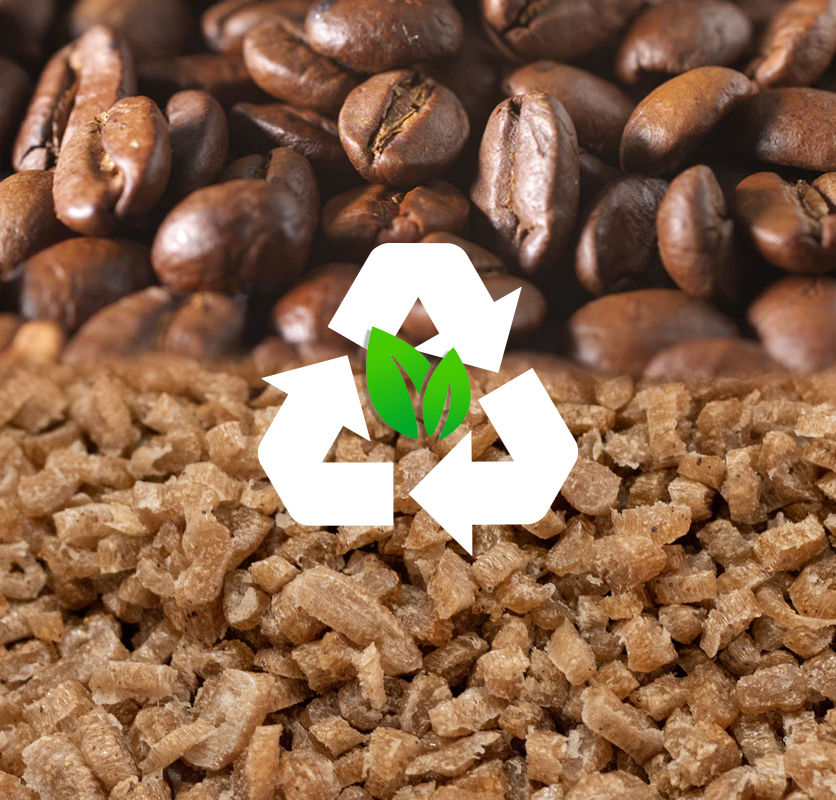
1. The rapid increase in waste sources and the amount of waste.
In Vietnam, the consumption of plastic products is increasing rapidly. The Vietnam Plastics Association (2019) estimates that the production and consumption of plastic is about 5 million tons in 2015, of which 80% of plastic production materials are imported. Vietnamese per capita plastic usage was was 41 kg/person in 2019, more than 10 times higher than the consumption of 3.8 kg/person in 1990.
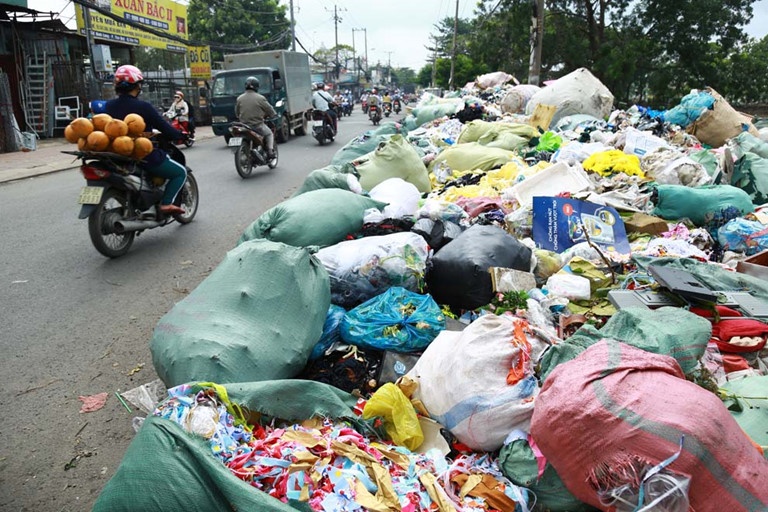
Currently, statistics and studies in Vietnam have not provided specific information on the amount, type and composition of plastic discharged into the sea, but only a few studies on plastic waste in general in some localities. A recent study by a group of authors from the VNU University of Science – Vietnam National University, Hanoi, shows that: In Vietnam, it is estimated that the amount of plastic discharged into the sea is about 0.28-0.73 million tons/year (accounting for 6% of the total amount of plastic discharged into the world’s sea), ranked fourth in the list of countries which dump the most plastic waste into the sea.
The rate of solid waste collection, including plastic waste, is 80-100% in urban areas, 40-55% in rural areas, and 81% of the country is treated according to standards and regulations. According to experts, only 10% of plastic waste in Vietnam is recycled, the remaining 90% of plastic waste will be buried, burned, or discharged directly into the environment.
In particular, the main methods being used to treat plastic waste in our country are landfilling, incineration and recycling. Recycling in our country has not been carried out on a large scale but is still small. The recycling technology has low efficiency and high cost, so it has not yet brought about high processing capacity. In addition, the very low percentage of plastic waste that is sorted from the source also makes it more difficult to separate and recycle.
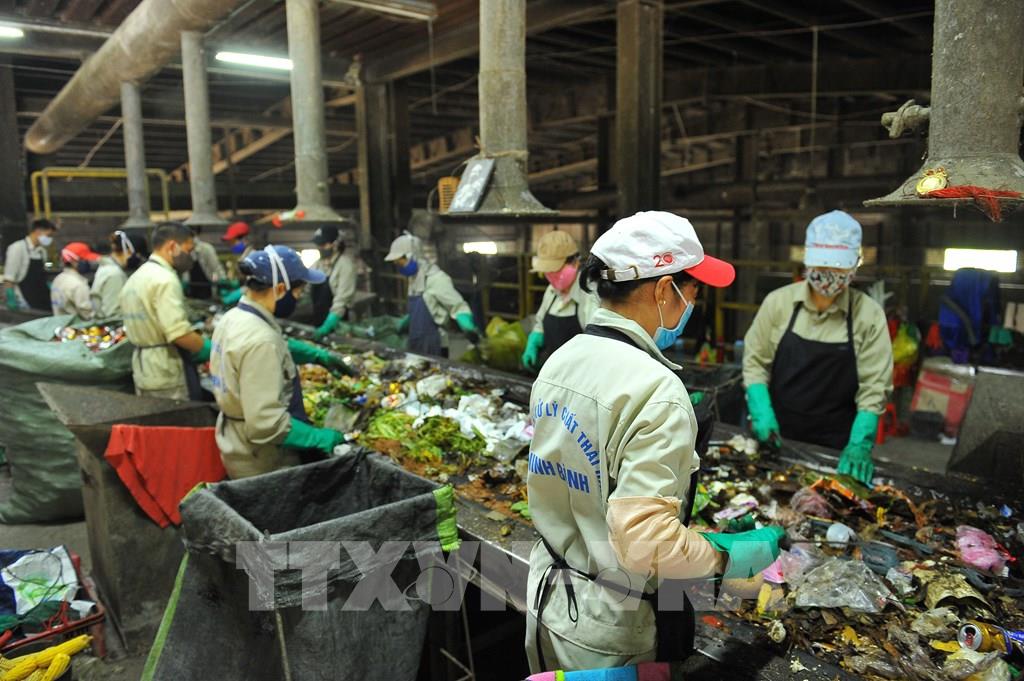
Vietnam is a country with the largest amount of plastic discharged into the sea in the world, due to many shortcomings in the management and treatment of plastic waste. Plastic waste in coastal areas due to fishing and tourism activities is a direct source of discharge into the ocean, in addition to the source from the mainland that is transported by rivers to the sea. Like other countries in the world, primary, secondary and quaternary recycling are widely applied in Vietnam, but the ability to control secondary pollution is still limited.
Therefore, many environmentalists believe that Vietnam should promote the promotion of reuse and create plastic replacement materials like bio-based or biodegradable origin. And Coffee Bio-composite and other biological products on the Vietnamese market are proud to be born to solve the plastic pollution crisis.
2. Coffee bio-composite appearance.

After nearly 10 years of research, Biopolymer Vietnam successfully developed Coffee Bio-composite which is environmentally friendly and have short decomposition time and base on coffee grounds which is extremely popular and typical in Vietnam. Thanks to a talented technical team, we have developed and mastered 100% bio-particle production technology in Vietnam at a reasonable cost.
It is proud to be a biodegradable product “made in Vietnam”, the country ranked second in the world in terms of coffee production and export. Coffee Bio-composite will be a solution to create a new life for coffee grounds and keep the purpose for a green-clean-beautiful environment, without plastic waste.
3. International biodegradation certifications that you should know
From raw and very simple coffee grounds, through strict and closed production and mixing processes, Biopolymer introduces Coffee Bio-composite product with optimum biodegradability which qualify for most typical biological certifications.
Certifications of biodegradation as well as quality are always a necessary and sufficient condition to demonstrate the environmental friendliness of bioplastic products. Through a rigorous research and production process, Coffee Bio-composite material was born confidently to meet the most rigorous certifications.
Achieving international standard certifications allows Biopolymer to bring Coffee Bio-composite more widely in the domestic and international market, not only as a guideline for product quality but also opening up opportunities for biodegradable application of Coffee Bio-composite.
3.1 OK Biobased certification from TUV Austria
The program OK biobased was launched in 2009 to provide companies with an independent assessment of the possibility of renewing environmentally friendly products. Now this certification is integrated into TÜV AUSTRIA Group, the biobased OK certification program continues to use the following system of marks to indicate biobased content in the product.
Products are rated:
- One star has 20% to 40% biobased content.
- Four stars have more than 80% biobased content.
Currently, our Coffee Bio-composite product is qualified with an OK Biobased certification equivalent to 3 stars which means that the product is guaranteed to contain 60% natural ingredients.
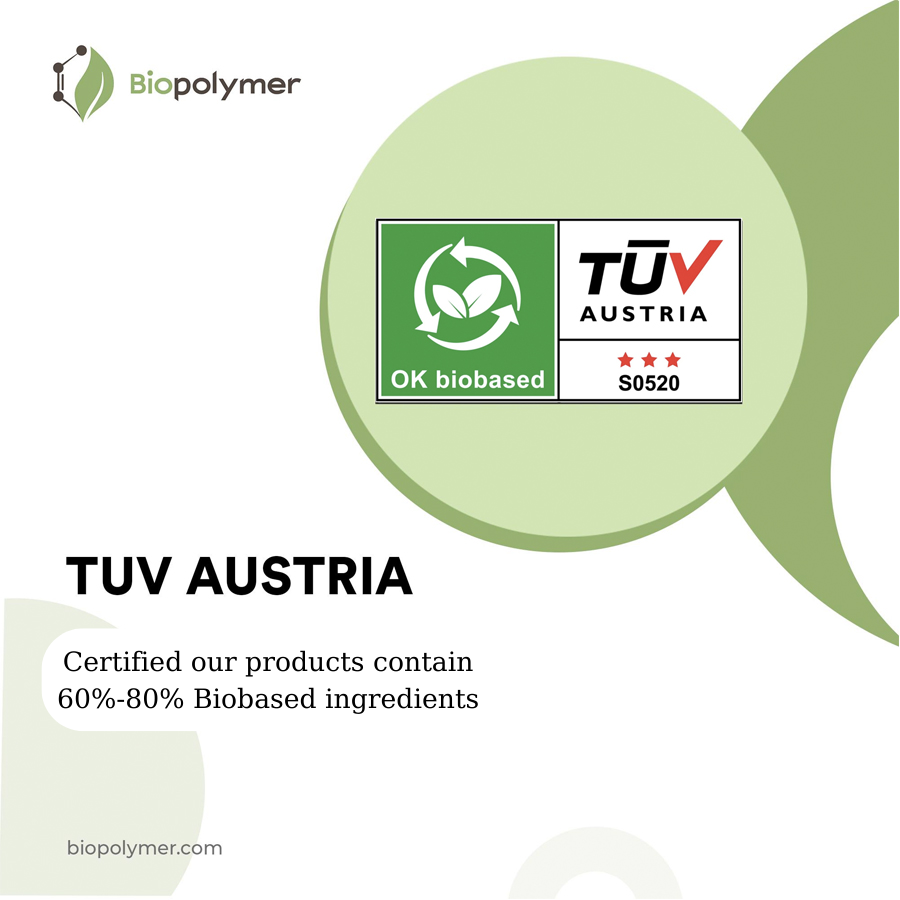
3.2 TUV Rheinland certification
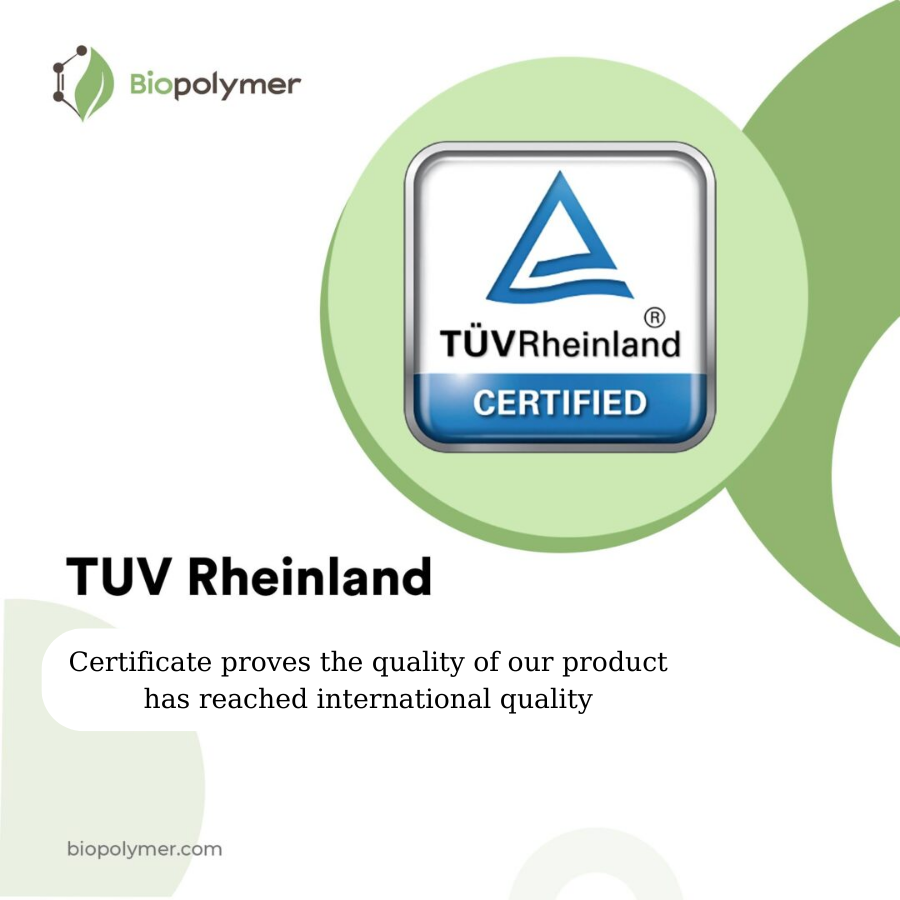
TUV certification stands for Technischer Überwachungsverein (Technical Inspection Association). TUV Rheinland is the largest of the three main TUVs in Germany and is globally recognized.
The TUV Rheinland certification is applicable to a wide range of safety-related areas, including individual products, management systems, IT processes, functional safety systems, personnel qualifications and complete companies.
The organization that achieves the TUV Rheinland certification is globally recognized by many national standards organizations, such as the Standards Council of Canada (SCC). This proves the authenticity of the company as well as product made from Coffee Bio-composite that is qualified with international standards.
3.3 DIN CERTCO certification
DIN CERTCO is the organization of TÜV Rheinland Group and provides certification like DIN-Marks and other certification marks. This is an organization which is highly appreciated over the world for its independence, neutrality, competence and more than 40 years of experience in this field.
Standards are an indispensable tool in ensuring technology is safe, protecting health, the environment and the benefits of customers in general. Accordingly, to achieve certification requires a rigorous process from prototype testing to type checking or environmental or quality management system audits.
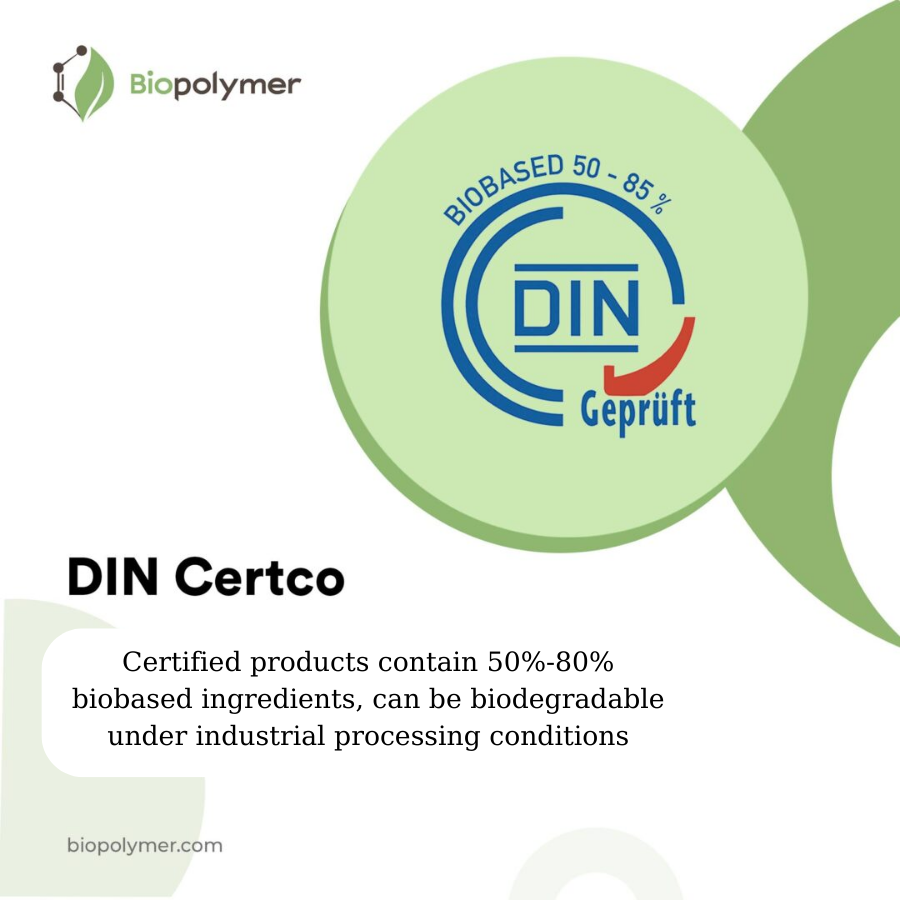
- German DIN-Geprüft Biobased has three quality grades for determining the biobased content of a product.
- Products made wholly or partly from biological raw materials can be certified under this program if they are at least 50% organic and have at least 20% biocarbon content. Coffee Bio-composite bioplastics are eligible for the 50% – 80% Biobased certification.
- The DIN-Geprüft Biobased certificate is valid for 6 years.
3.4 USDA Biobased certification – United Department of Agriculture
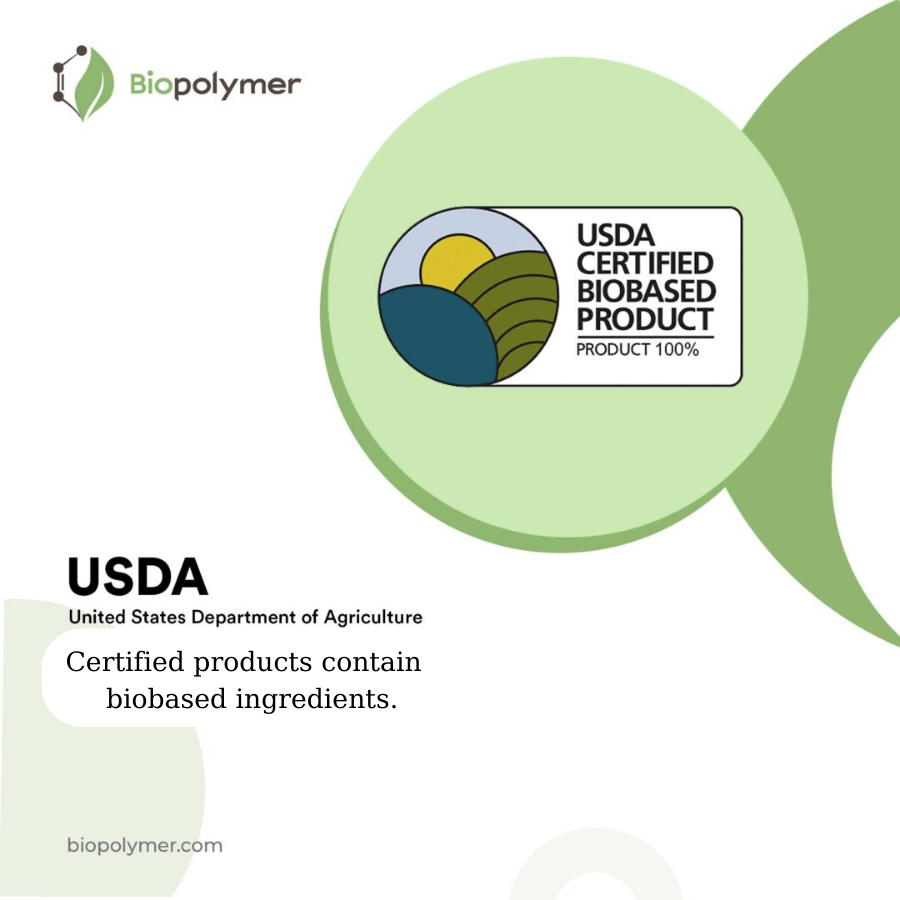
The USDA certified Bio based label to provide useful information to consumers about a product’s biobased content. The label assures consumers that the Coffee bio-composite contains a renewable amount of biological ingredients.
The products made from Coffee bio-composite offer all the benefits of conventional products: low cost, availability and more consideration over petroleum-based products when it can replace the effect but also have less impact on the environment.
3.4 SGS certification – Standard Global Services
SGS stands for Société Générale de Surveillance SA, is a multinational company founded in 1878, headquartered in Switzerland. SGS operates extensively with a network of 2,600 offices and laboratories around the world.
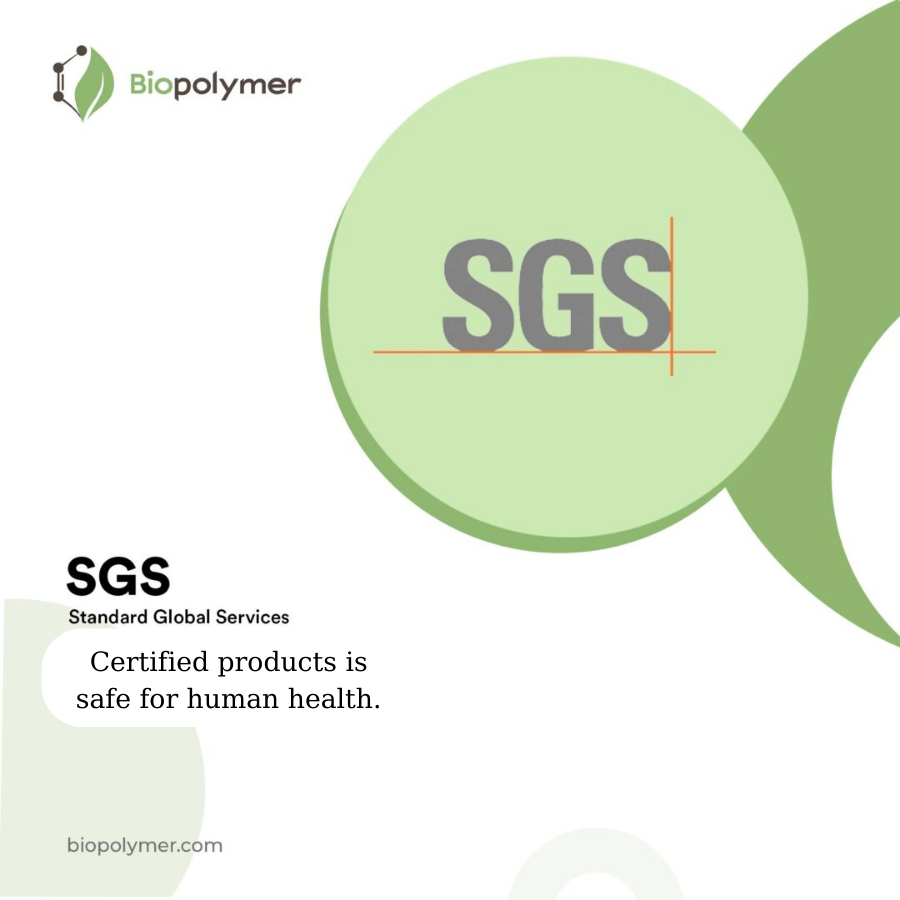
Coffee Bio-composite are proud to be qualified for SGS to inspect, verify, test and certify product quality to meet leading health and safety standards.
This is also the leading base for consumers to trust and choose products applied from Coffee Bio-composite such as cups, food boxes, cutlery, cutlery, ..vv. Because, these products have gone through the stages of testing and verification for quality and safety from experts. Customers can be assured when using products from Coffee Bio-composite.
The above certifications are the key premise for Coffee Bio-composite to become a potential biological product in the bioplastic industry and develop with a more sustainable green economy.
Purchasing Policy
Please visit Biopolymer Website, then click “Contact Us” and leave the necessary information. Our Biopolymer team will advise about sizes and quotes as soon as possible.


 Tiếng Việt
Tiếng Việt